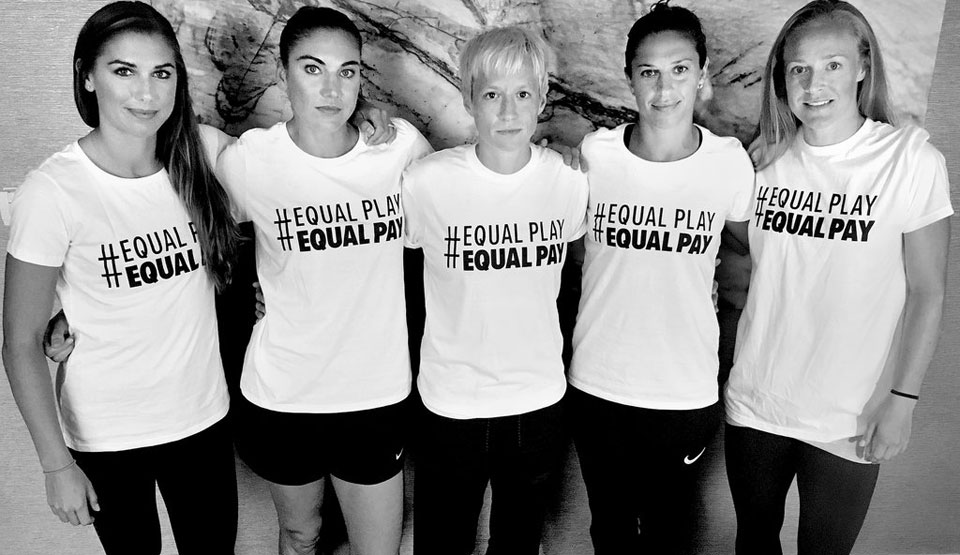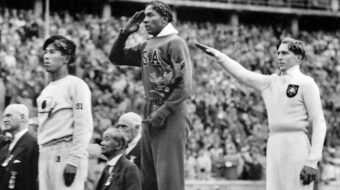
LOS ANGELES—The medal-winning U.S. women’s soccer team may be repeat champions on the field, but they’ve been treated like chumps by the U.S. Soccer Federation. And now they’ve gone to court to prove it and to stop it.
In a lawsuit filed in U.S. District Court in Los Angeles on March 8—International Women’s Day—all 28 members of the team, which routinely walks off with Olympic and World Cup gold medals, say they’re paid far less than the far-less-successful men’s team and labor under harsher working conditions.
And that’s the result of sexual discrimination by USSF, and that federation keeps discriminating against the women despite their union contract, the suit adds.
The lawsuit is the latest move in the long-running saga of USSF’s mistreatment of, and discrimination against the women. The women staged a brief strike about wages and working conditions as far back as a 2000 tournament in Australia, and five of them took their wage discrimination complaint to the federal Equal Employment Opportunity Commission in 2016. But that case has been marooned in the chronically understaffed EEOC.
So, without dragging their union in, all 28 of the women headed to court in a class action suit saying USSF has violated both the 1963 Equal Pay Act and Title VII of the 1964 Civil Rights Act.
The Equal Pay Act, which courts have emasculated over the years, mandates equal pay for equal work. Title VII bars all forms of discrimination by race, sex, gender, religion, and other factors.
The pay gap alone is so bad that, in the three-year-old EEOC case, the five players who sued then pointed out they earned one-quarter of what the men earned—even though their far-more-successful team brought in $20 million more in revenue than the men did.
“The USSF has utterly failed to promote gender equality,” the lawsuit says. “It has stubbornly refused to treat its female employees who are members of the WNT (women’s national team) equally to its male employees who are members of the MNT.”
And USSF “has paid only lip service to gender equality and continues to practice gender-based discrimination against its champion female employees on the WNT in comparison to its less successful male employees on the MNT.”
That includes forcing the women—but not the men—to play on artificial turf fields, where disabling injuries are more likely. It even includes USSF laxness in finding and training qualified referees for the women’s soccer games.
And the pay is still horrifyingly unequal. The suit compares salary schedules for the two soccer teams, and it shows that if each team played 20 games a year, the average pay for each member of the less-successful men’s team would be $263,320. For the women? $99,000.
Despite all this, the women’s team has won almost all the Olympic and World Cup titles, starting in 2000, the suit notes.
The pay gap persists despite the collective bargaining agreement between the women soccer team’s independent union and USSF. That pact expires in 2021. The union is not part of the lawsuit but supports it.
“The lawsuit is an effort by the plaintiffs to address those serious issues through the exercise of their individual rights,” a union statement reads. “For its part, the U.S. Women’s National Team Players Association will continue to seek improvements in pay and working conditions through the labor-management and collective bargaining processes.”
The Coalition of Labor Union Women, the AFL-CIO constituency group, is cheering the women’s team on, too.
“That’s great! Good for them. The differences” in pay and working conditions “are deplorable,” said Carol Rosenblatt, CLUW’s executive director.
No hearing date has been set for the suit yet.












Comments